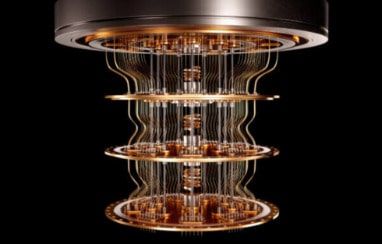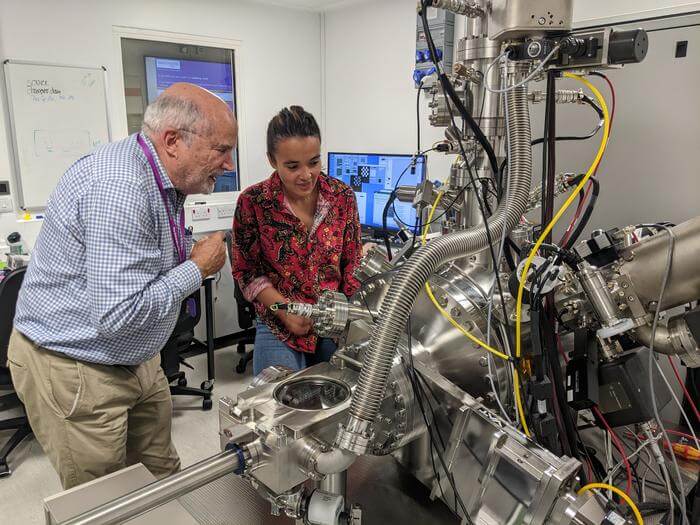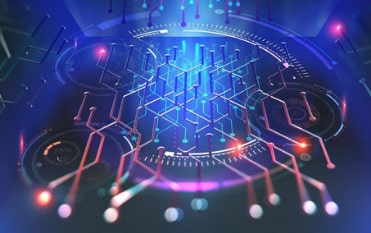
The future of computing is quantum – at least, that’s what experts say. Instead of using the regular 1s and 0s of classical computing, quantum computers utilize the mind-bending properties of quantum physics to perform certain calculations exponentially faster. Unfortunately, building a practical, large-scale quantum computer is an immense challenge. One of the biggest hurdles has been finding the perfect material to make the quantum bits (qubits) out of. Now, however, the search may finally be over.
A team of researchers from the United Kingdom and Australia may have just cracked the code. In a recent paper, published in Communications Materials, study authors describe a novel technique for creating silicon enriched to an unprecedented level with a specific isotope ideal for quantum computing. Their method paves the way for ultra-powerful quantum chips built from this ultra-pure silicon.
“What we’ve been able to do is effectively create a critical ‘brick’ needed to construct a silicon-based quantum computer. It’s a crucial step to making a technology that has the potential to be transformative for humankind – feasible,” says Richard Curry, Professor of Advanced Electronic Materials at The University of Manchester, in a media release.
So, what’s so special about silicon? It turns out that standard off-the-shelf silicon isn’t quite pure enough. Normal silicon crystals contain a mixture of different isotopes – varieties of the same silicon atom with different numbers of neutrons. About 4.7 percent of the silicon atoms have a nuclear spin that can interfere with the fragile quantum state of any silicon qubits. It’s like having tiny jiggly toy tops scattered throughout the crystal, knocking the qubits off balance.
To fix this, the researchers employed a super high-tech device called a focused ion beam implanter. This zaps the silicon crystal with a concentrated beam of accelerated silicon-28 ions – the isotope type without any pesky nuclear spin. By carefully aiming and sweeping this beam across tiny micrometer-scale areas on the silicon surface, they were able to dope or “enrich” these spots to incredibly high silicon-28 levels.

Using mass spectrometry analysis techniques, the researchers found these enriched areas had as little as 0.0023 percent of the spin-carrying silicon-29 isotope remaining – far purer than any previous enrichment method. In the researchers’ own words, this left only about 0.004 stray silicon-29 atoms on average within the critical area surrounding each qubit.
Why does this matter in quantum computing? Eliminating those few stray silicon-29 atoms could extend the fragile quantum coherence (balance) of silicon qubits by over four orders of magnitude – from the current state-of-the-art coherence time of around one millisecond to over 10 seconds! That’s like going from a decoherence blink of an eye to keeping the quantum oddities stable for up to half a minute.
The focused ion beam approach also allowed this extreme enrichment without introducing other contaminating impurities that could jumble the qubits. Plus, it created these enriched zones embedded within cheap, bulk silicon chips rather than needing specialized equipment to grow entire enriched crystals.
With qubits inside these ultra-pure silicon-28 zones, future quantum computer chips could have millions of rock-solid qubits working together. That opens the door for incredibly powerful quantum computers capable of simulating complex chemistry, decrypting codes, modeling materials, and more.
Of course, major hurdles still remain before we have practical quantum computers on all of our desks. Still, this key materials breakthrough from the Manchester and Melbourne researchers brings us a major step closer to realizing that quantum dream. With ultra-pure silicon-28 chips providing the perfect qubit construction zone, tomorrow’s quantum developers have their future building site ready and waiting.
“Now that we can produce extremely pure silicon-28, our next step will be to demonstrate that we can sustain quantum coherence for many qubits simultaneously. A reliable quantum computer with just 30 qubits would exceed the power of today’s supercomputers for some applications,” concludes project co-supervisor, Professor David Jamieson, from the University of Melbourne.
Article: World’s purest silicon chips open door to mass producing quantum computers


